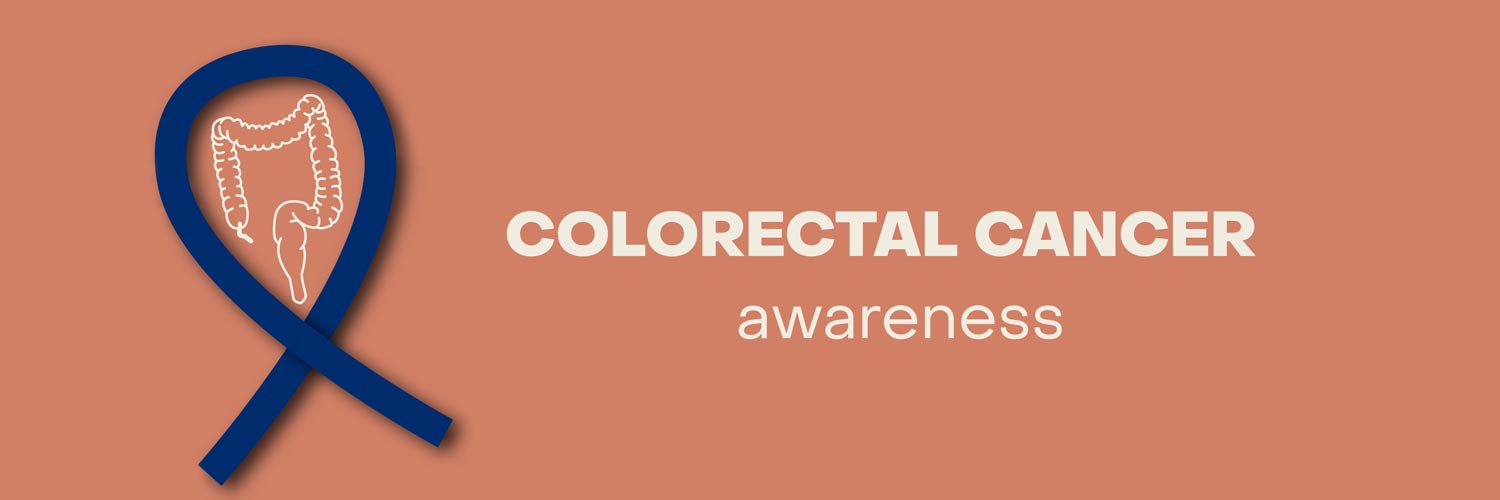
Colorectal cancer is the third most common cancer type worldwide; in 2020, almost 2 million cases were diagnosed. It is the second most common cause of cancer death, leading to almost 1 million deaths per year. This is despite the fact that effective screening techniques exist that could reduce the number of deaths from this disease.
Colorectal Cancer Awareness Month is observed in March to highlight the importance of screening for colorectal cancer, as well as to promote healthy lifestyle habits that can decrease a person’s risk of developing cancer of the colon, rectum, or anus – the three distinct cancer types referred to collectively as colorectal cancer.
The burden of colorectal cancer is highest in Asia, where more than half of all cases and deaths are recorded. China alone accounts for more than half a million new cases and more than 280 000 deaths per year. Japan records the second highest number of deaths from colorectal cancer, almost 60 000 per year.
The International Agency for Research on Cancer (IARC) estimates that the global burden of colorectal cancer will increase by 56% between 2020 and 2040, to more than 3 million new cases per year. The estimated increase in the number of deaths from the disease is even larger, by 69%, to about 1.6 million deaths worldwide in 2040. Most of the increase is expected to occur in countries with a high Human Development Index.
IARC researchers have proven that various factors can increase or decrease a person’s risk of developing colorectal cancer. Most of these factors also affect the risk of developing other cancer types, similarly increasing or decreasing it.
For example, alcohol consumption was responsible for more than 160 000 new cases of colorectal cancer in 2020, or 8% of all cases of the disease diagnosed that year. Alcohol consumption also increases a person’s risk of developing at least six other cancer types, including liver cancer and breast cancer.
Other known cancer risk factors include tobacco smoking, which causes lung cancer, and human papillomavirus (HPV) infection, which causes cervical cancer. Both of these risk factors also contribute to the burden of colorectal cancer.
Another factor that increases the risk of developing colorectal cancer is obesity. Obesity was responsible for more than 85 000 cases of colon cancer and 25 000 cases of rectal cancer diagnosed in 2012, or about 23% of all cases of colorectal cancer diagnosed that year. Obesity also increases a person’s risk of developing at least seven other cancer types.
Intentional weight loss, physical activity, and diets rich in fish, fruits, and vegetables can decrease a person’s risk of developing colorectal cancer. Attending organized screening increases the chance of detecting colorectal cancer when it is at an earlier, and potentially more manageable and treatable, stage. A selection of related IARC research projects is highlighted here.
The EPIC studyThe EPIC study with Dr Marc Gunter
Since the European Prospective Investigation into Cancer and Nutrition (EPIC) study was launched 25 years ago, more than 1000 scientific articles using EPIC data have been published, many of them focused on the relationship between diet and colorectal cancer. In this video, Dr Marc Gunter, Head of the Nutrition and Metabolism Branch at IARC, explains what EPIC is and describes potential directions for the study’s future.
Watch the video
IARC study shows eating fish regularly can reduce your risk of developing colorectal cancer
In this video, Dr Elom Aglago, who was a postdoctoral scientist in the Nutrition and Metabolism Branch at IARC when this video was made, presents the findings of a study on whether regularly eating fish has an effect on a person’s risk of developing colorectal cancer.
Watch the video
IARC study shows eating fish regularly can reduce your risk of developing colorectal cancer
Alcohol consumption and cancer with Harriet Rumgay
In this video, Ms Harriet Rumgay, a researcher in the Cancer Surveillance Branch at IARC and the lead author of an article about the impact of alcohol consumption on the global burden of cancer, presents the main findings of the study and calls for effective policies to increase public awareness of the risks of alcohol consumption and to reduce the burden of cancers caused by alcohol consumption.
Watch video
Alcohol consumption and cancer with Harriet Rumgay
Dr Béatrice Lauby-Secretan on evaluating colorectal cancer screening methods
In this video, Dr Béatrice Lauby-Secretan, Deputy Head of the Evidence Synthesis and Classification Branch at IARC, explains how the IARC Handbooks of Cancer Prevention programme evaluated the effectiveness of colorectal cancer screening methods in reducing colorectal cancer incidence and mortality. This information enables governments and public health organizations to take action against this disease in the most effective way.
Watch the video
Dr Béatrice Lauby-Secretan on evaluating colorectal cancer screening methods
Read IARC Handbooks of Cancer Prevention Volume 17: Colorectal Cancer Screening
Related videos